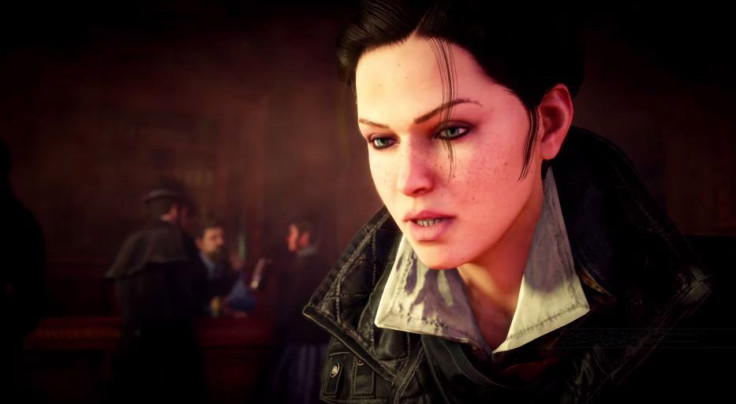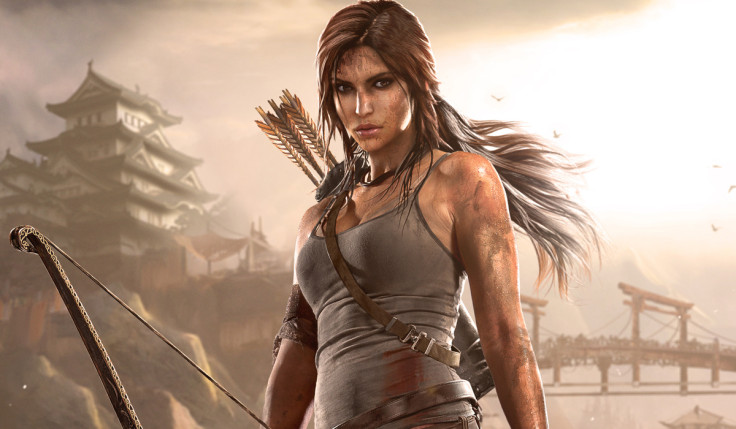Assassin's Creed Syndicate: Is Ubisoft exploiting feminism for easy PR?

Historically, games have respected women about the same as you might respect a banana peel, or a used tissue. Women have been sexualised, objectified, belittled, discriminated against and misrepresented at every juncture.
But in the past couple of years, more and more games have started to feature women characters not as damsels in distress, or jiggle-physics-enabled arm candy, but protagonists. The Last of Us: Left Behind and Tomb Raider are a couple of noteworthy efforts, also Gone Home, Life is Strange and Remember Me. By no means have these titles "fixed" gaming's relationship with women, but they are, for the most part, a step in the right direction – at the very least, they're a step towards the right direction.
Lately however, I think there's been something opportunistic about the way games are treating women. The announcement this week that the new Assassin's Creed, entitled Assassin's Creed: Syndicate, would feature a playable female as well as male protagonist smacks, to me, not of an industry that genuinely cares about women, but one that is prepared to use them for the sake of publicity.
The fact that "female characters will be playable" is a press release at all – that Ubisoft, the game's developer, felt it pertinent to drip release that information – makes me feel as if women, especially in this case, have become a cynical kind of marketing tactic, deployed to whip up online chatter between GamerGate sexists, and make the rest of us normal people simply feel a bit warm and fuzzy.
Stirring up publicity or covering their backs
I'm relieved, of course, that women are finally receiving some stature in videogames, but these pre-launch "we will have female characters" press releases, like Syndicate, like Bedlam, like this from the Mortal Kombat X developers, don't feel to me like developers trying to include and ingratiate women into games. Instead, it seems like game-makers are either trying to stir up publicity or merely cover their backs and demonstrate, like a restaurateur to the health inspector, that they are in compliance with expected standards.
There's a "you want it? Here then, have it!" kind of tone to these announcements – if the developers and writers actually thought or cared about women, they wouldn't shout about it this way.

This isn't what the process of creating gender equality in games looks like. More helpful – more powerful – would be to simply HAVE female characters in games, for them to simply BE THERE, not for developers to point out and proclaim it like it's some noteworthy oddity. Admittedly, it is noteworthy.
As I've said, videogames traditionally have treated women abysmally. But I don't think it's instructive or helpful to draw direct attention to women being in games. It still feels like the process of "othering" women, only now approached from a different angle – othering, but via the back door.
As long as the existence of female playable characters, or just female characters that aren't heinous caricatures, is drawn attention to, women in games will feel like an alien presence. You might argue that developers announcing their female characters this way is spreading the word somehow – it's encouraging other game-makers to do the same. But I don't buy that. This is just marketing.
Flaunted and touted

'The defences, or explanations, I read for this kind of trash are usually along the lines of "that's Kojima's style" or "it's a Japanese thing", as if, simply because a fashion of game design is individual, either to a person or a culture, it's excusable – nay – applaudable.'
Read Ed's take on P.T. here.
The female characters in videogames are not given half as much attention as their male oppressors. On the contrary, they're still objects being flaunted and touted by developers, only now via different language. Especially in the case of Syndicate, female characters feel like a badge of honour that the developer has chosen to wear not out of any sense of purpose of principle, but simply for reasons of appearance – simply for convenience.
It's an affectation. If you're using women characters so nakedly as marketing material, I can't possibly believe that you actually care about them. If you did, you wouldn't reduce them to this mere window dressing.
"It's better than nothing" is the best defence I can come up with for this kind of marketing. Or rather, it's better than what predominated before, which was still women being used to promote games, except barely clothed, ludicrously proportioned sexist caricatures. But it's still tragic.
What dire straits is videogaming in when the mere presence of a woman in a game, in any role outside of damsel or eye candy, is considered news worthy, not just by the game's developer, but by the press also? How low do your standards as a creative have to be that you contact journalists to boast how your latest story has a woman in it?
Ed Smith writes about games, films and culture for IBTimes UK. He has also written for The Observer, Vice, New Statesman and Edge magazine. Find him on Twitter @mostsincerelyed
© Copyright IBTimes 2025. All rights reserved.






















